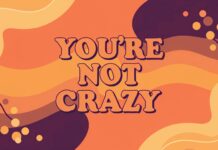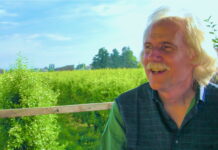This week on MIA Radio, we interview Professor Sir Robin Murray. Professor Murray is an Honorary Consultant Psychiatrist in the Psychosis Service located at the Bethlem Royal Hospital in South London. He is also a Professor of Psychiatric Research at the Institute of Psychiatry. His research covers epidemiology, molecular genetics, neuropsychiatry, neuroimaging, neuropsychology and neuropharmacology.
 Professor Murray’s main research interest is finding the causes of schizophrenia and bipolar disorder, as well as developing better treatments for these disorders. He is perhaps best known for helping to establish the neurodevelopmental hypothesis of schizophrenia, and for his work on the environmental risk factors relating to schizophrenia, such as obstetric events and cannabis use.
Professor Murray’s main research interest is finding the causes of schizophrenia and bipolar disorder, as well as developing better treatments for these disorders. He is perhaps best known for helping to establish the neurodevelopmental hypothesis of schizophrenia, and for his work on the environmental risk factors relating to schizophrenia, such as obstetric events and cannabis use.
In 2011, Professor Murray was awarded a knighthood for services to medicine and he is the second most widely cited psychiatrist in the world outside the USA.
In this interview we discuss:
- How Professor Murray came to psychiatry and what sparked his interest in research into psychosis.
- Professor Murray’s work to counter the concept of schizophrenia as a debilitating brain disease and how we came to appreciate the many factors that may contribute to psychotic illness.
- The importance of recognising the influence of social factors in the causes of psychotic illness.
- The differences between the Diagnostic and Statistical Manual (DSM V) and the International Classification of Diseases (ICD 11).
- How psychiatric diagnoses compare and contrast to diagnoses in other branches of medicine.
- The question of whether schizophrenia is a real entity or purely an artificial construct.
- How antipsychotic drugs exert their effects and the mechanisms by which they may lead, in some cases, to dopamine supersensitivity.
- How we should be cautious about the long-term prescribing of antipsychotic drugs.
- The effect that limited healthcare resources have on psychiatric diagnoses and treatments.
- What the future may hold for research into and treatment options for psychosis.
Relevant links:
The Psychosis Service at the Bethlem Royal Hospital
Webinar: Is Schizophrenia Dead Yet?
Thou shall not criticise our drugs
To get in touch with us email: [email protected]
© Mad in America 2017















Crikey, this is so gone wrong, on so many levels.
Report comment
In the UK if a patient wants to reduce their drugs their requests are usually ignored the staff.
“Like insulin for diabetes,” is often said to patients by staff.
The psychiatrists I hear about seem to know anything about drug reduction or dopamine super sensitivity.
Maybe Robin will let them know his opinions soon?
I’m not holding my breath
Report comment
A lot of it is just clever talk. It’s not even inventive.
Report comment
I told doctors in the Maudsley Hospital 37 years ago that tranquilizers were likely to make a person worse, and this was definitely my own experience. I withdrew eventually but only after 4 hospitalizations a suicide attempt and at least one near miss. I was lucky.
My (historical) Psychiatrist at Galway Ireland diagnosed rebounds as relapses…
https://ps.psychiatryonline.org/doi/abs/10.1176/ps.49.10.1361-b
..my experience is that coming off tranquillizers should be gradual.
(My historical psychiatrist also couldn’t tell the difference between the disabling side effects of his own drugs and genuine mental illness).
I don’t believe in “Schizophrenia” or Psychotic Breaks either. People do have “breakdowns” or “melt downs”, and when they do they often talk “rubbish” – but, so what.
Report comment
“coming off tranquillizers should be gradual”
Very very important point, totally not accepted by psychiatrists who just rip people off one drug to another. Toxic Psychosis, which I have had and more than once is the most horrific experience I have ever endured, easily worse than having a kidney stone stuck in your tube.
They pay NO attention to the BNF, and it is why they not only need to be stopped, they need to be put before a court, judge and jury for crimes against humanity, now does that sound a bit over the top ? Well a single psychiatrist – through out their career – has seriously harmed probably over a thousand, plus their families and spouses to boot.
Just a little reminder for you psychiatrists, this is what you do and have done to very many people:
https://www.youtube.com/watch?v=IKNzL-eU650&feature=youtu.be&t=1967
“Withdrawal of a benzodiazepine should be gradual because abrupt withdrawal may produce confusion, toxic psychosis, convulsions, or a condition resembling delirium tremens.”
http://benzo.org.uk/BNF.htm
Report comment
Come on Robin!
When people in Jamaica smoke cannibas do they develop “schizophrenia” – no they don’t, they might go a bit loopy on cannibas and some stop and some don’t.The reason they don’t develop “Schizophrenia” is because Jamaica is not prepared to pay for it.
When I was in the Maudsley Hospital in 1980, I saw a lot of normal young people going around the place calling themselves “names”. It’s a swindle!
It’s the psychiatric drugs that do the long term damage!
Report comment
“Professor Murray’s main research interest is finding the causes of schizophrenia and bipolar disorder, as well as developing better treatments for these disorders.”
The primary cause of both “schizophrenia” and “bipolar” is likely iatrogenesis, because the treatments for these theorized disorders can actually create both the negative and positive symptoms of “schizophrenia.” The negative symptoms of “schizophrenia” can be created via neuroleptic induced deficit syndrome, and the positive symptoms can be created via antidepressant and/or antipsychotic induced anticholinergic toxidrome.
https://en.wikipedia.org/wiki/Neuroleptic-Induced_Deficit_Syndrome
https://en.wikipedia.org/wiki/Toxidrome
The only difference between the central symptoms of anticholinergic intoxication syndrome, which “may include memory loss, disorientation, incoherence, hallucinations, psychosis, delirium, hyperactivity, twitching or jerking movements, stereotypy, and seizures;” and the positive symptoms of “schizophrenia” is “hyperactivity” vs. “inactivity.” Thus, misdiagnoses will be frequent.
And especially since neither of these known psychiatric drug induced illnesses are listed in the DSM billing code “bible,” no doubt misdiagnoses will be rampant, since the doctors want to be paid.
Thus “better treatments for these disorders” would require not prescribing the antidepressants and/or antipsychotics (neuroleptics). It’s not that complicated, Robin, you should have learned about these toxidrome/syndrome in med school.
Report comment
When true scientific investigation and study shows that the one definite place that chemical imbalance is caused and occurs in psychiatry is the implementation of psychiatric drugs…
And that’s science.
Report comment
As regards dopamine – when I came off neuroleptics i suffered from “High Anxiety”. If i couldnt recognise this and find out how to deal with it, I wouldnt have survived.
When a person is in “catastrophy mode” any thinking will produce “Catastrophy” – the trick is not to get involved in the thinking until the “Catastrophy mode” has passed off.
Once the “Catastrophic mode” passes off the thinking becomes “rational” . This is very basic psychotherapy that works.
Report comment
The same idea is described very eloquently (below):-
“Eckhart Tolle_Overcoming The Pain Body”
https://youtu.be/D23chge6ct4
Report comment
“Professor Murray’s main research interest is finding the causes of schizophrenia and bipolar disorder, as well as developing better treatments for these disorders.”
If it weren’t so sad, it would be incredible that people can build their careers around the quest for the causes of fictitious diseases. Of course there are people who manifest a wide variety of strange symptoms (most often symptoms that are the direct result of psychotropic drugging and psychiatry coercion), but so-called “bipolar disorder” and so-called “schizophrenia” are no more real than the Easter Bunny or the Tooth Fairy. You can’t find the cause of a fictitious disease, nor can you find a cure. Szasz was right. Schizophrenia is the sacred symbol of psychiatry. Psychiatric diagnoses are not medical diagnoses. They are inventions. The imaginary psychiatric “diseases” are not discovered. They are concocted.
“The question of whether schizophrenia is a real entity or purely an artificial construct.”
Simple. It’s an artificial construct. Unfortunately, it’s a very harmful and pernicious artificial construct.
There’s no such thing as an “antipsychotic” drug. It’s a misnomer, as so many, including Breggin and Moncrieff have demonstrated with the utmost clarity. Psychotropic drugs are dangerous, brain-altering, neurotoxins. They damage the brain and impair the reasoning of those who ingest them. We should not be cautious about administrating psychotropic drugs. We should eliminate them, particularly because they not only cause harm to those who ingest them, but they may cause their victims to perpetrate horrendous acts of violence.
Psychosis is another false notion that the fraudulent Freud helped to popularize.
The future? The bright future that MIA portends is the complete abolition of psychiatry, and the elimination of destructive labels such as “schizophrenia” and “bipolar.”
Report comment
Right now I’m too busy to address this in full, so I’ll leave the psychiatrists with this, it’s just one of very many reasons we are motivated:
https://www.youtube.com/watch?v=DIZ6KDCHBWg
Report comment
Robin, It’s good to see you saying some positive things, but in reality the Mental Health System is a Scam. It soaks up a lot of Public Money with a proportion of this money being skimmed off to buy influence and to reward the facilitators.
“..The Causes of Schizophrenia and Bipolar Disorder?..”:- A lot of Renowned Psychiatric Experts would maintain that, The Bi Polar Epidemic was caused by the original misuse of Psychiatric Drugs.
I believe that probably everybody in the UK knows someone that was “more or less okay” until they started with the “Mental Health System” and are now “Long Term Severely Mentally Disabled”.
Report comment
The term Psychotic is also a Scam because the vast majority of people described as Psychotic are not remotely Psychotic – they are people with problems that can be sorted out without physical intervention.
Report comment
I think it is important that Sir Robin has his voice on MIA. He has interesting things to say about the research and how his opinions have changed over the years. What I wonder is whether and how much he has listened to service users/survivors of psychiatry?
Report comment
To bring you up to date in one instance. He is still practicing. For a hefty fee he will listen to you patiently, to the point he seems credible, then right you an uplifting report. He will look at your current drugs regime that you have been following for the past 15 years, then prescribe additional anti-depressants to “help” you, saying they won’t cause you harm. This would be sad, laughable if it weren’t so tragic.
Report comment
John,
I agree with you regarding Sir Robins voice on MIA.
I believe there’ll have to be some sort of “Reconciliation” anyway, to come to terms with the longterm disaster we have experienced in the last 40 years in “Mental Health”.
(The unnecessary deaths alone in “Mental Health” in the Developed World could be described as a Holocaust. The majority of these casualties would not even be seen “sick” or “disabled” in the Developing World).
Report comment
Dopamine (again).
The effect of Neuroleptics (I believe) is to switch off motivation and to create a state of indifference. This is why neuroleptics “work” for “psychosis”.
But Neuroleptics can also “switch off” the necessary motivation for genuine Security.
For example a person on Neuroleptics can be indifferent to the risk of Setting the House on Fire.
SOLUTIONS
In Buddhist Psychology a state of “Equanamity” would be whats aimed for; where a person can be calm and nonprejudiced – but also recognise risk.
This is why the Practice of Buddhist Psychology can successfully bring about about the Full Recovery from “Schizophrenia” and the “High Anxiety” of Neuroleptic Drug Withdrawal.
Report comment
Love this. Exactly!
Report comment
Thank you very much Steve,
Sir Robin seems to be still promoting the “Medical Model” – I recovered through the Psychological Process and I can substantiate this.
People on Neuroleptics rarely recover –
they become longterm Psychiatric Patients.
Report comment